
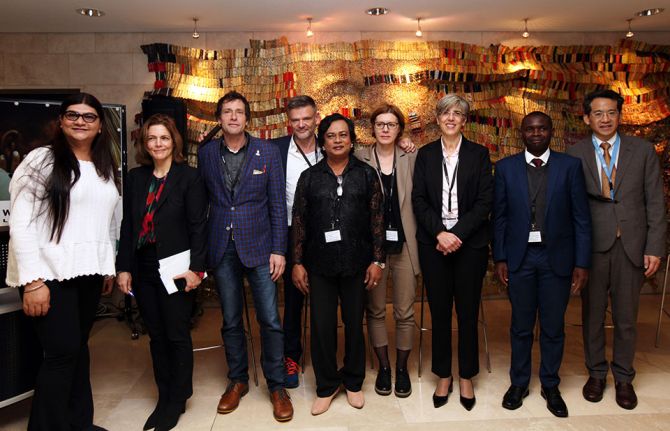

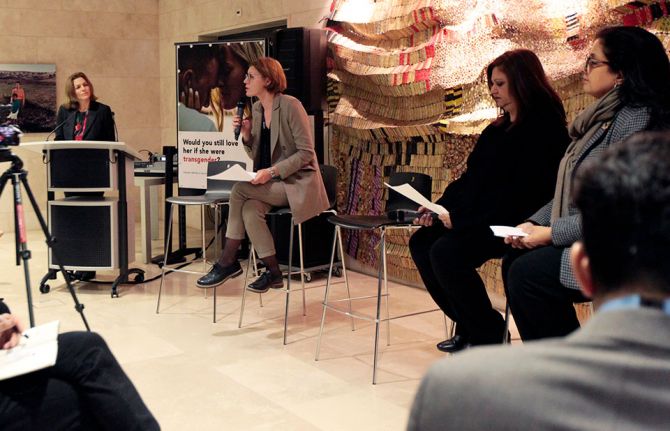
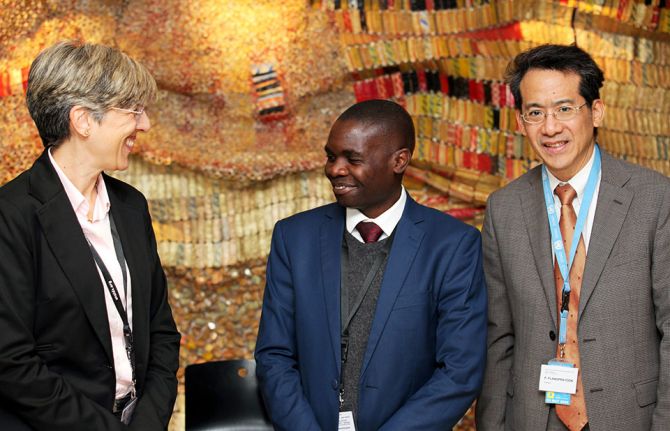
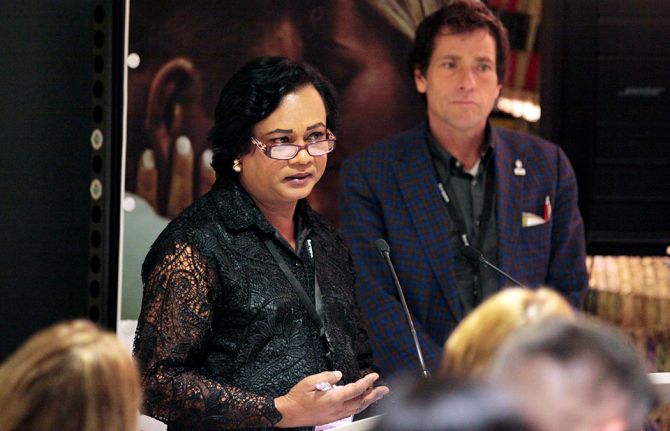
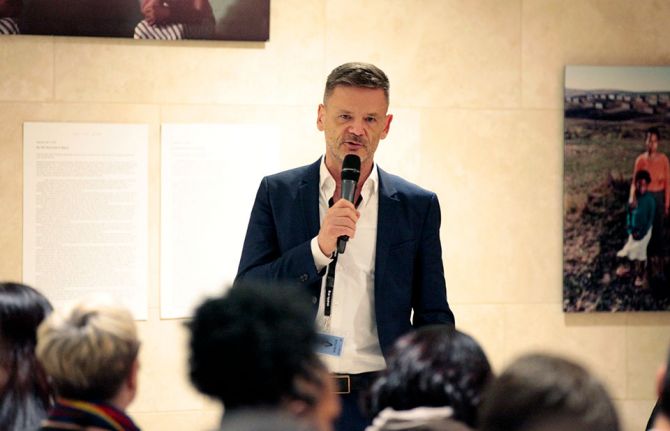
Feature Story
Launch of a global partnership to eliminate HIV-related stigma and discrimination
10 December 2018
10 December 2018 10 December 2018Despite the existence of human rights obligations and policy commitments, HIV-related stigma and discrimination continues to be widespread around the world and in all sectors of society.
Following a call from civil society in 2017 to accelerate and scale up action to address stigma and discrimination, UNAIDS, UN Women, the United Nations Development Programme and the Global Network of People Living with HIV (GNP+) agreed to co-convene the Global Partnership to Eliminate All Forms of HIV-Related Stigma and Discrimination.
The global partnership was launched on 10 December on the 70th anniversary of the adoption of the Universal Declaration of Human Rights, during an event in Geneva, Switzerland. The panel of people speaking at the event included Phanpob Plangprayoon, the Deputy Permanent Representative of Thailand to the United Nations Office and other International Organizations in Geneva, Dan Namarika, the Secretary for Health of Malawi, Raquel Duarte, the Deputy Minister of Health of Portugal, and Simran Shaikh, a community representative to the UNAIDS Programme Coordinating Board (PCB).
The panellists presented programmes that have proved to be effective in reducing HIV-related stigma and discrimination in the areas in which the global partnership will focus—health care, schools, the workplace, the family, justice systems and emergency and humanitarian settings.
“This partnership aims to translate Member States’ commitments into well-resourced programmes that are proved to work and that can result in the enjoyment of HIV-related rights for all,” said Michel Sidibé, Executive Director of UNAIDS.
“The Global Network of People Living with HIV is pleased to be a co-convenor of this critical and ground-breaking global partnership that seeks to transform our communities’ best strategies for addressing and measuring HIV-related stigma and discrimination into actionable and accountable global targets and goals,” said Javier Hourcade Bellocq, GNP+ Board Chair.
People living with HIV, adolescents, young people and key populations experience discrimination, including discrimination based on their gender and gender identity, race, ethnicity, age, drug use, sexual orientation and migration status. These added layers of stigma and discrimination increase their vulnerability to HIV and undermine their rights, including the right to health, work and education.
At the end of the event, the UNAIDS PCB nongovernmental organization delegation called on Cosponsors, Member States, civil society, key populations, communities and partners to join the global partnership and lead and support concrete country actions and investments to end HIV-related stigma and discrimination.



